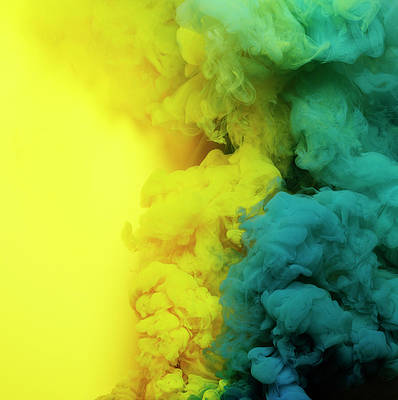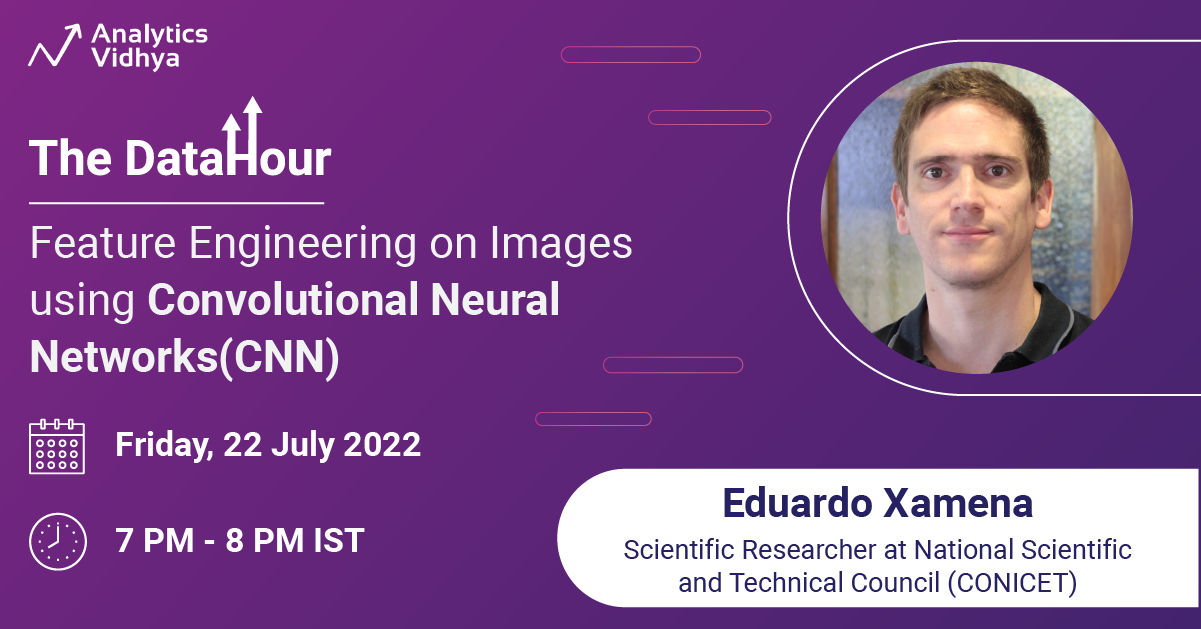Introduction
Eduardo Xamena is hosting a DataHour with us. He works as a Scientific Researcher at National Scientific and Technical Council, developing methods and architectures for information extraction and retrieval from enormous amounts of text. The history of the Argentinian Revolution and the number of complaints received by the Public Ministry of Salta are two application areas in which these techniques can be used (Argentina). Cleaning up text in OCR-acquired volumes and creating text representations that are appropriate for categorization processes. He will explain Feature Engineering on Images using Convolutional Neural Networks(CNN). Feeling energetic? Register Now!
BOOK YOUR SEAT NOW! 
About DataHour
Convolutional Neural Networks are a method for representing non-linear features in a variety of data samples, primarily pictures. By establishing a complex hierarchy of interpretive neural layers and other components that give a more robust collection of features for differentiating objects and characteristics seen on images, CNNs emulate the behaviour of human and animal brains. We can create exact categorization and object identification Machine Learning models for images with the addition of this additional knowledge before the fundamental dense neuronal layers.
In this DataHour, the fundamental ideas of CNN will be discussed along with various examples utilising Python and Tensorflow/Keras. In addition, certain cutting-edge designs will be discussed, along with the potential applications for applying them in software development.
About the Speaker
Eduardo Xamena holds a PhD in Computer Science, focusing on the structural analysis of mathematical models from chemical engineering and the propagation of relevance in topical networks. Currently, a Scientific Researcher is working on developing methodologies and architectures for large-scale text retrieval and extraction. Such tools’ application fields include the history of the Argentine revolution and the volume of complaints received by the Salta Public Ministry (Argentina). Carrying out text cleaning tasks in OCR acquired volumes and creating text representations suitable for classification procedures.
In addition, he is working on Deep Learning applications to image processing tasks, such as handwritten text recognition. He is currently a professor in the Computer Vision and Data Science chairs.
Prerequisites
The desire to learn about Deep learning and you’re well-versed with the basics of Python.
Who is this DataHour for?
- Students and Freshers with interest in Data Science and Deep Learning.
- Data science professionals and enthusiasts wanted to accelerate their career growth.
Any Questions
Drop us an email at [email protected], or you can chat with the speaker directly during the session.
Contact
To take advantage of this fantastic opportunity. Register for this DataHour here.
If you missed any of the past episodes of “The DataHour,” you may watch the recordings on our YouTube channel. You can read a summary of previous DataHour sessions on our blog by clicking here.
Connect
If you’re having trouble enrolling or would like to conduct a session with us. Contact us at [email protected].






